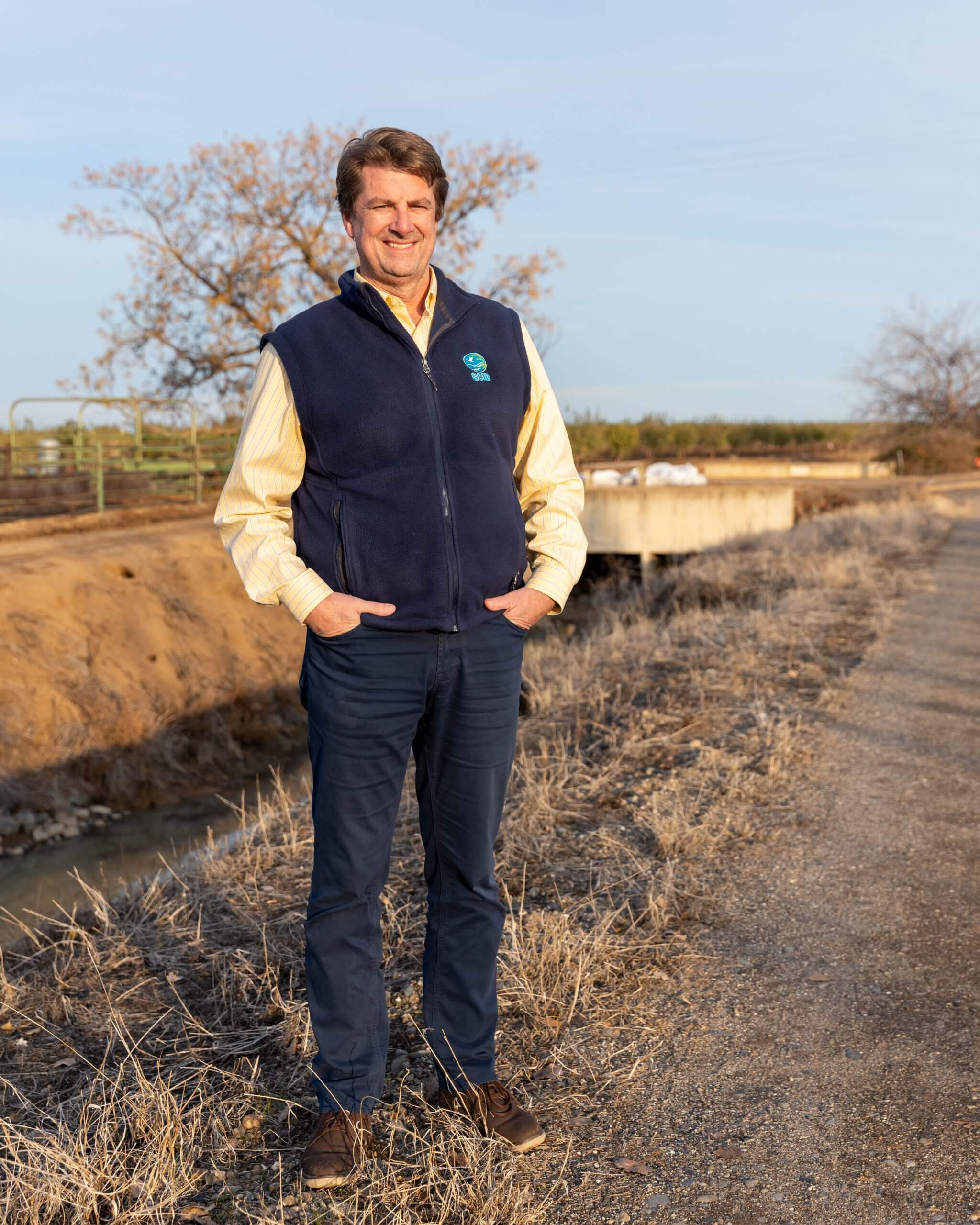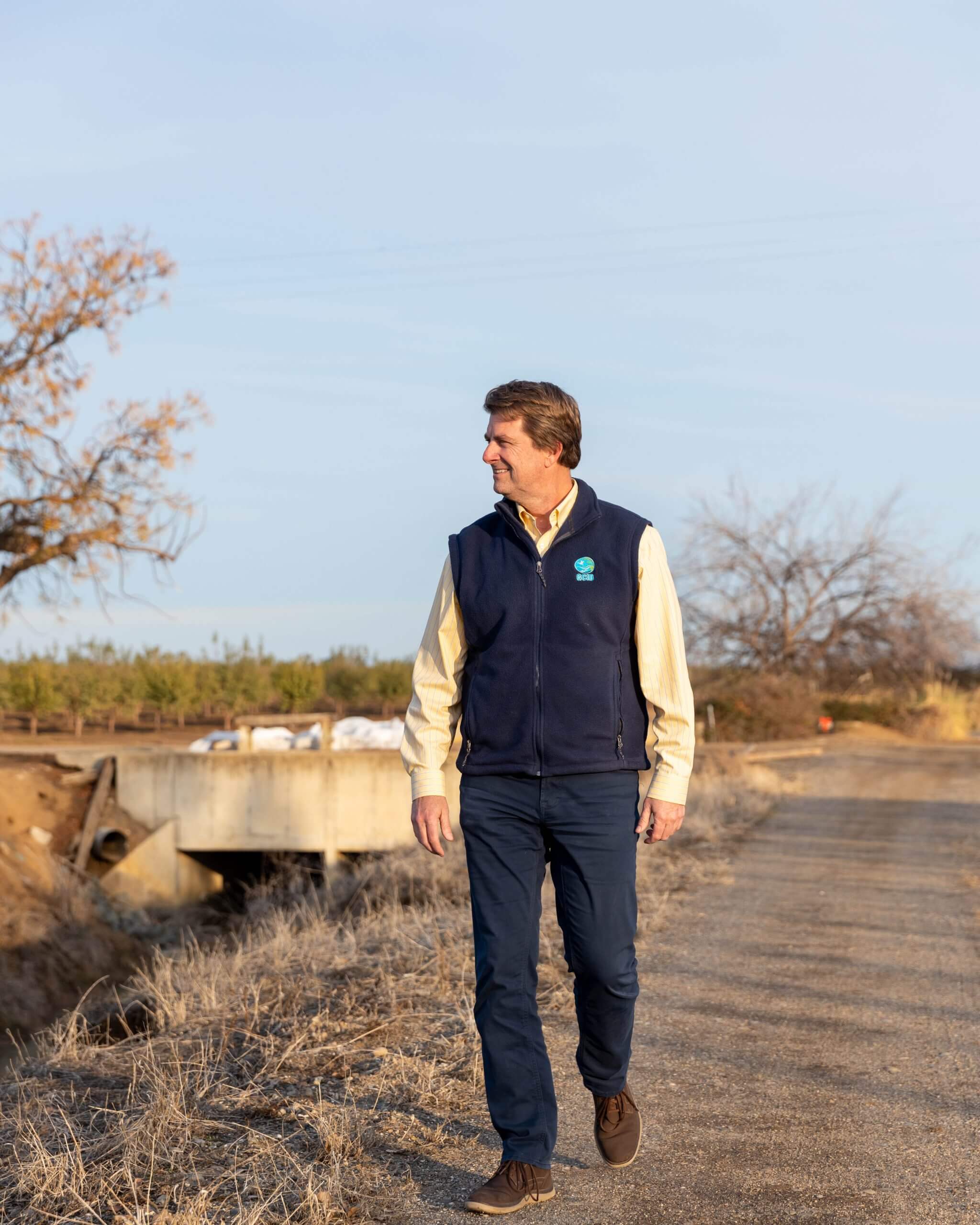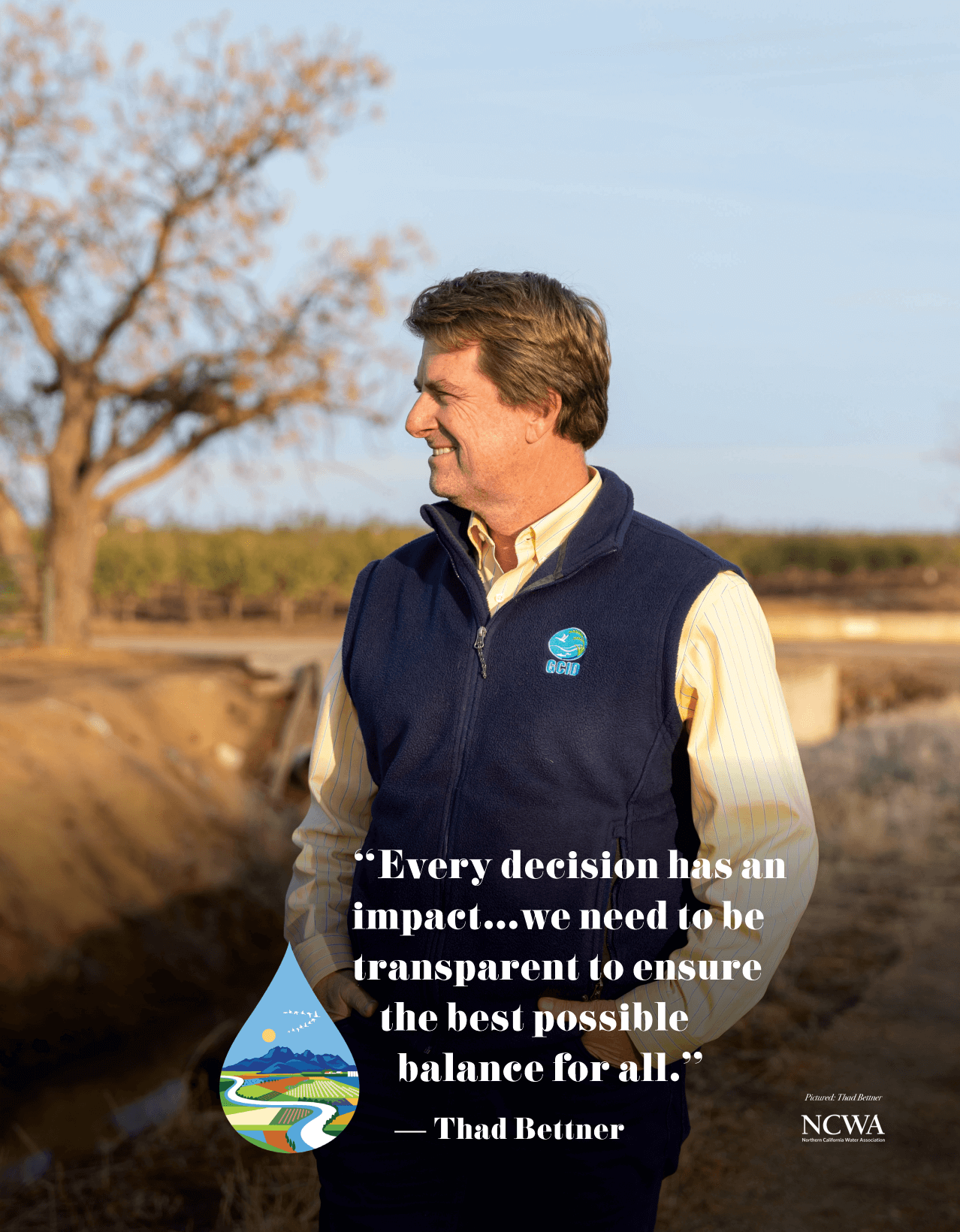
While some prefer to just “go with the flow” – Thad Bettner is the flow. He is the one constant motion, continuously engaging the journey even if it seems riddled with challenges along the way. Active is a perfect adjective for a man who spends his days entrenched in water resource and environmental management issues as head of the Sacramento River Settlement Contractors.
His journey to executive director started in a small town south of Santa Barbara named Carpinteria, a spot famous to surfers looking to ride the waves off Rincon Point or to those who can’t resist a sprawling ocean view as they hike the western slope of the Los Padres National Forest.
“For me, it didn’t matter what it was, as long as it was outside. My brothers and I were always at the beach – it seemed as if we practically lived in the water,” says Bettner.
Outside is also where Bettner was during breaks from school, staying with his grandfather in Los Banos. While the Central Valley didn’t have waves, it had seemingly endless ponds of water in the wintertime that were perfect for duck hunting. Those early mornings on the wetlands gave Bettner a deep appreciation for not only the environment.
After high school, Bettner didn’t venture far. Remaining on the Central Coast, he attended California Poly – San Luis Obispo, studying Agricultural Engineering with a focus in water delivery. “I was able to apply my undergraduate work on optimizing efficiencies in water deliveries to help the Fresno Irrigation District become a leader in water management practices.”
 Various drought cycles had forced many farmers to turn to heavy groundwater pumping. Bettner and the FID team began one of the first groundwater recharge programs in the state. “It was something 30 years ago that wasn’t top of mind in the industry, but we knew it was all connected. We couldn’t have adequate surface supply without knowing the state of the groundwater system.”
Various drought cycles had forced many farmers to turn to heavy groundwater pumping. Bettner and the FID team began one of the first groundwater recharge programs in the state. “It was something 30 years ago that wasn’t top of mind in the industry, but we knew it was all connected. We couldn’t have adequate surface supply without knowing the state of the groundwater system.”
After spending 16 years with Glen Colusa Irrigation District (GCID), Thad is now leading the Sacramento River Settlement Contractors – which represents 138 cities, farms and ranchers from Chico to the capital city. He says balancing the needs of landowners and wildlife is no easy task.
“We have a duty to make sure we can sustainably grow crops, raise livestock and ensure we have thriving communities, but it also means we must find ways to improve and maintain habitat and food sources for birds that migrate along the Pacific Flyway, our local terrestrials, and the Chinook salmon that navigate the Sacramento River.”
From spawning and rearing habitat to fish screens to flooding rice fields for waterfowl and shore birds, to managing flows for temperature needs of salmon, SRSC are working to reinvigorate an ecosystem ignored for far too long. “These choices don’t come easy. Every decision has a tradeoff and an impact somewhere and we need to be honest and transparent to ensure the best possible balance for all.”
 When he feels limited by roads or trails, Bettner has found an unlimited amount of space in the skies above. From the pilot seat of a Cessna 182 Skyline single-engine airplane, he looks down upon the farm fields and irrigation canals sprawling in all directions. From here, he often finds a new perspective.
When he feels limited by roads or trails, Bettner has found an unlimited amount of space in the skies above. From the pilot seat of a Cessna 182 Skyline single-engine airplane, he looks down upon the farm fields and irrigation canals sprawling in all directions. From here, he often finds a new perspective.
The waves, the road and the sky offer Thad the perfect balance to see not only the best way forward but the alternate viewpoint as well. It has helped him solve complex problems in the past and is offering a sense of confidence to address future issues as well. In a new era of water management, it is exactly what will help achieve the greatest results.




